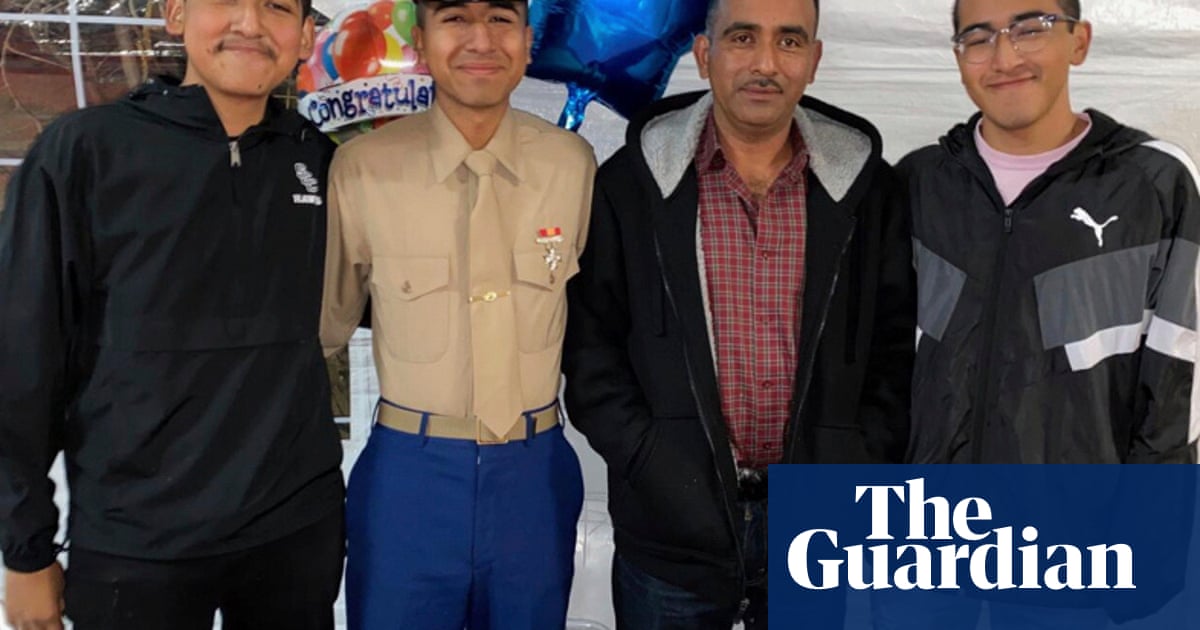As Trump urges more deportations, veterans are seeing their parents, children and even themselves detained
The son of an American citizen and military veteran – but who has no citizenship to any country – was deported from the US to Jamaica in late May.
Jermaine Thomas’s deportation, recently reported on by the Austin Chronicle, is one of a growing number of immigration cases involving military service members’ relatives or even veterans themselves who have been ensnared in the Trump administration’s mass deportation program.
As the Chronicle reported, Thomas was born on a US army base in Germany to an American citizen father, who was originally born in Jamaica and is now dead. Thomas does not have US, German or Jamaican citizenship – but Trump’s Immigration and Customs Enforcement (Ice) agency deported him anyway to Jamaica, a country in which he had never set foot.
Thomas had spent two-and-a-half months incarcerated while waiting for an update on his case. He was previously at the center of a case brought before the US supreme court regarding his unique legal status.
The federal government argued that Thomas – who had previously received a deportation order – was not a citizen simply because he was born on a US army base, and it used prior criminal convictions to buttress the case against him. He petitioned for a review of the order, but the supreme court denied him, finding his father “did not meet the physical presence requirement of the [law] in force at the time of Thomas’s birth”.
…
In another recent case, the wife of another Marine Corps veteran was detained by Ice despite still breastfeeding her three-month-old daughter. According to the Associated Press, the veteran’s wife had been going through a process to obtain legal residency.
…
In March, Ice officials arrested the daughter of a US veteran who had been fighting a legal battle regarding her status. Alma Bowman, 58, was taken into custody by Ice during a check-in at the Atlanta field office, despite her having lived in the US since she was 10 years old.
Bowman was born in the Philippines during the Vietnam war, to a US navy service member from Illinois stationed there. She had lived in Georgia for almost 50 years. Her permanent residency was revoked following a minor criminal conviction from 20 years ago, leading her to continue a legal battle to obtain citizenship in the US.
…
In another recent case, a US army veteran and green-card holder left on his own to South Korea. His deportation order was due to charges related to drug possession and an issue with drug addiction after being wounded in combat in the 1980s, for which he earned the prestigious Purple Heart citation.
“I can’t believe this is happening in America,” Sae Joon Park, who had held legal permanent residency, told National Public Radio. “That blows me away – like, [it is] a country that I fought for.”

https://www.theguardian.com/us-news/2025/jun/28/us-military-veterans-detained-trump


